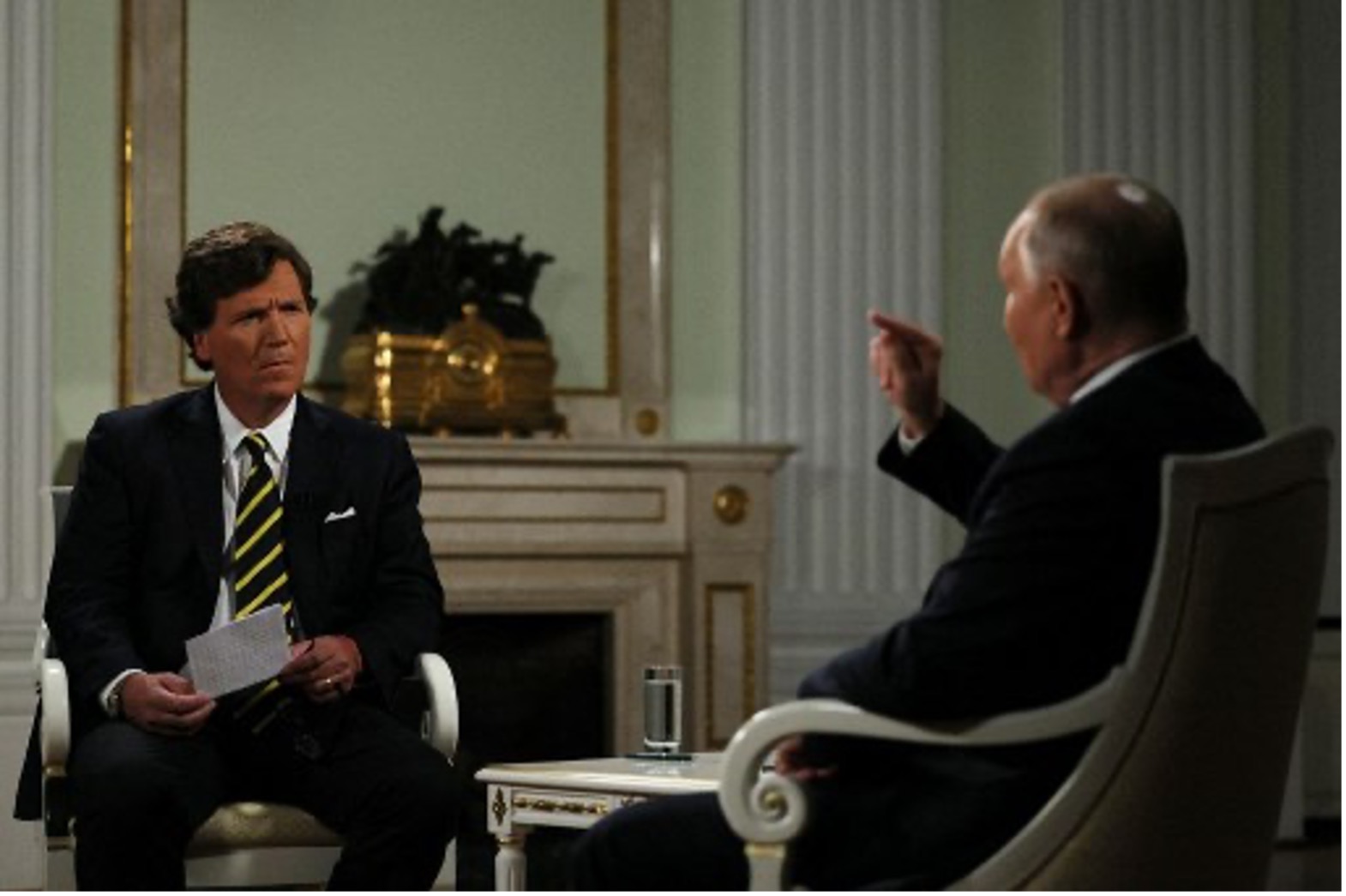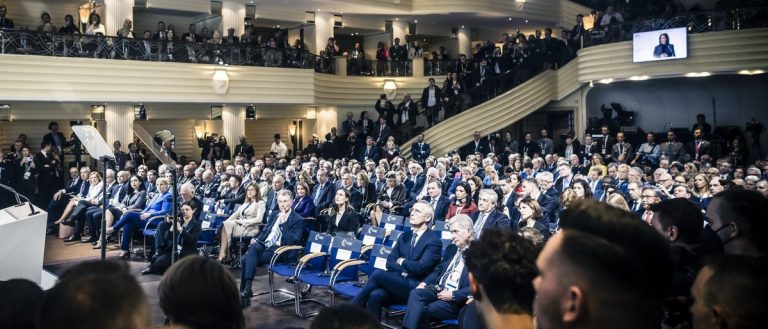From the editor: Munich Security Conference (MSC) 2024 will be held from February 16 to 18, 2024. MSC 2024 provides a unique opportunity to engage in strategic discussions about the world's most pressing security challenges. Additionally, the Munich Security Conference, founded in the fall of 1963, will celebrate its 60th anniversary before and during the conference. Sixty years after its founding by Ewald von Kleist, the MSC will continue to gather high-level decision makers and experts from around the world in February 2024 to discuss the most pressing issues of international security. We plan to discuss it.A Kyiv Post correspondent will report from the venue.
As geopolitical tensions increase and economic uncertainty increases, many governments are no longer focused on the absolute benefits of global cooperation and fear that they may reap fewer benefits than others. There are growing concerns about this. Prioritizing relative rewards can fuel lose-lose relationships, jeopardizing cooperation and enlarging the proverbial pie for the benefit of all despite obvious flaws. It can undermine the order that helps you.
Transatlantic partners and like-minded countries currently face a difficult balancing act. On the other hand, they must prepare for a much more competitive geopolitical environment in which a mindset of relative gain is inevitable. On the one hand, the two countries must revive positive-sum cooperation, without which more inclusive global growth and solutions to pressing global problems can hardly be achieved.
In absolute terms, the post-Zeitenwende era ushered in by the end of the Cold War was a success story. The danger of war between the great powers seemed remote, multilateral cooperation flourished, democracy and human rights spread, and world poverty decreased.
The emergence of an open, rules-based international order has enabled the “pie” of global prosperity to expand significantly. However, modern Zeitenwende takes a different direction:
Pessimism crushed early post-Cold War optimism
Amid intensifying geopolitical conflicts and a global economic slowdown, key actors in the transatlantic community, powerful autocracies, and the so-called Global South are increasingly aware that the absolute benefits of the international order are being distributed unequally. They become dissatisfied with what they perceive. From the perspective of many developing countries, the international order has never fulfilled its promise of increasing the pie for the benefit of all. China and other authoritarian challengers, perhaps the biggest beneficiaries of the liberal economic order, feel that the United States is suppressing their legitimate aspirations and forcing their way into an even bigger share of the pie. .

And even the custodians of the traditional order are no longer happy to see their stocks shrinking. In fact, people in all of his G7 countries surveyed for the Munich Security Index 2024 see their country as stagnant or in decline, while China and other great powers in the Global South We expect it to get even stronger in the coming years. As more states define their success in comparison to other countries, a vicious cycle of relative profit thinking, loss of prosperity, and increased geopolitical tensions may emerge. The resulting lose-lose relationships are already playing out in many policy areas and involving different regions.
In extreme cases, concerns about relative gains take the form of zero-sum beliefs, that is, the belief that the gains of other actors necessarily come at the cost of one's own losses. Nowhere is this idea more evident than in authoritarian states exploring their spheres of influence.
In Eastern Europe, Moscow's imperial ambitions are already provoking war and undermining any vision of a cooperative security order for the foreseeable future.

As a result, Ukraine is at the highest risk of suffering losses and its very existence as an independent country is at risk, while President Putin's war is also causing great damage to the Russian people, a lose-lose situation. It becomes. And Europeans will no longer enjoy the benefits of peace and will have to spend more on defending themselves and supporting Ukraine.
Many observers fear a similar escalation in violence in the Indo-Pacific, where different visions of order are increasingly colliding in a zero-sum manner. China's increasing militarization of its maritime periphery is already raising concerns that Beijing is turning East Asia into its exclusive sphere of influence. As a result, many countries in the region are seeking closer security ties with the United States and reducing their economic dependence on China. However, a decisive decline in cooperation with China would be a blow to both China and China. Moreover, if great power rivalry intensifies in the region, everyone loses.
The escalation in violence in the Middle East is costing everyone. Terrorist attacks by Hamas have caused untold suffering to Israel and dealt a blow to the country's very sense of security. Israel's response has plunged the Gaza Strip into despair, marked by soaring civilian casualties, destroyed infrastructure, and a humanitarian emergency. The war could also upend regional closeness, which has gained momentum and begun to change the zero-sum mentality among regional powers. In the worst case scenario, Iranian proxies could start a conflagration, potentially escalating the war further.
In the Sahel, a series of coups d'état also worsened the lose-lose relationship (Chapter 5). In Burkina Faso, Mali and Niger, where military regimes recently seized power, Europe and the United States have lost a partner to promote development, democracy and good governance, fight terrorism and manage migration. People in the Sahel are losing opportunities for peace and democratic progress. Meanwhile, in Sudan, the deadly power struggle that followed the 2021 coup has sparked an epic humanitarian crisis.
Geopolitical tensions are also changing globalization. Countries around the world are increasingly pursuing economic security against coercion rather than maximizing mutual benefits. As a result, capital and trade flows are beginning to fragment along geopolitical lines. “De-risking” economic relationships may reduce vulnerability and, in turn, reduce the likelihood of conflict between rivals. But a fragmented global economy would come at great cost, especially for low-income countries.
Even climate policy, a classic positive-sum area where everyone benefits from cooperation, risks becoming embroiled in geopolitical tensions. Climate, economic and geopolitical goals are becoming increasingly aligned, but the adoption of green technologies and progress towards net zero is a challenge across the Atlantic over tensions between China and the US, trade and subsidy rules. It can be hampered by disagreements, divisions between low and high standards. Income countries that include more than enough climate finance.
Technological progress, which has long been a driver of global prosperity, is increasingly being exploited by rivals such as China and the United States, which want to monopolize strategic technologies such as semiconductors and artificial intelligence (AI). In doing so, they accept the fact that they will fragment the technology sector and incur collateral benefit losses. Much-needed global regulation on AI and data security risks falling prey to the securitization of technology.
Rather than reforming an open, rules-based international order to better realize the promised mutual benefits, the international community is currently moving in the opposite direction.
Transatlantic partners and like-minded countries therefore face a difficult balancing act.Must invest in defense and deterrence while selectively restricting the pursuit of mutual benefits to politically like-minded countries
But this must not lead to a vicious cycle in which fear of unequal rewards engulfs more and more issues and positive-sum cooperation is confined to fewer and fewer states.
Above all, a course correction will require a transatlantic effort to build stronger partnerships with countries in the Global South and jointly reform the existing order to work to the advantage of a wider range of global actors. It must not be detrimental.
But this is easier said than done in an election year when the tangible benefits of closer cooperation between democracies may even come under further pressure. There is therefore a real risk that a growing number of countries will find themselves in a lose-lose situation, where the question is not who will gain more, but only who will lose less.
Click here for the original text.


